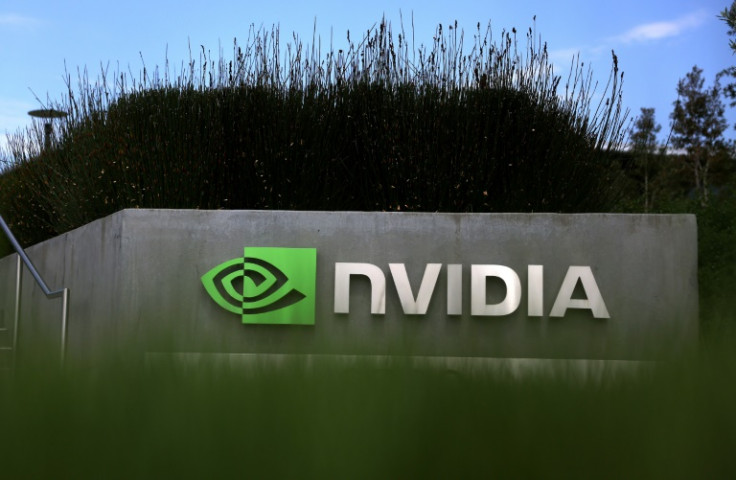Nvidia Stock Rally Spreads Beyond Techs, Goes Global. What Comes Next?

U.S. stocks staged another rally last week, thanks to blowout earnings by Nvidia, which reinforced the buy-in-the-dips investor mentality. But investor enthusiasm for stocks spread beyond techs, this time to other domestic sectors and overseas markets.
The S&P 500 ended the week at 5,088.80, up 1.70%; the Dow Jones at 39,131.99, up 1.30%; and the tech-heavy Nasdaq at 15,996.82, up 1.40%. That's another reversal from the previous week when major equity averages headed south on stagflation concerns.
But, unlike in the previous week, the reversal of last week was broad and extended to market sectors that have been laggards, like healthcare, industrials, and even financials.
Overseas markets followed, though, as well. The STOXX Europe 600 Index climbed to a record level, ending the week 1.15% higher. The Nikkei 225 Index broke the previous record set more than 30 years ago, in December 1989. In addition, the broader TOPIX also finished at its highest level since February 1999.
The solid gains in U.S. equities came despite elevated bond yields. The benchmark 10-year U.S. Treasury bond ended the week with a yield of 4.26%, roughly where it began, on inflation jitters.
"The U.S. stock market began the final day of the business week with major indexes hovering near record highs, boosted by Nvidia's strong earnings," Cliff Ambrose, FRC, founder and wealth manager at Apex Wealth, told International Business Times.
"While tech stocks faced some early pressure, stocks ended another winning week. Despite solid U.S. economic data delaying expectations for rate cuts, it's worth noting that the market has shown optimism in the final week of February," Ambrose said.
But as U.S. stocks keep on rising, so do valuations. For instance, Nvidia's valuation crossed the $2 trillion mark. It's up 58.59% YTD, 1,873.44% in the last five years, and 16.4% on Thursday's session alone, following the release of its financial results on Wednesday afternoon.
These valuations are having some in the financial press talking about an Nvidia-led AI bubble, which parallels the dot-com and networking era of the late 1990s.
Still, there's a big difference between now and then. Small tech companies mostly led the dot-com and networking rally of the 1990s with weak financials and over-stretched valuations. In contrast, large tech companies with solid financials and reasonable valuations lead today's rally. For instance, Nvidia has $26 billion in cash and $11 billion in debt, trading with a forward PE of 33.
"Artificial intelligence is the technology theme of the decade, and we believe U.S. technology stocks are the biggest beneficiary of artificial intelligence," Greg Marcus, managing director of UBS Private Wealth Management, told IBT. "Many big tech companies have a strong balance sheet and earnings growth, which are characteristics we favor in this elevated interest rate environment."
Marcus supports the buy-the-dip mentality when it comes to big tech. "Even though market breadth is still narrow, it's wider than last year, with more and more stocks outperforming the S&P 500 this year," he stated.
Meanwhile, he expects the tech rally to spread to other sectors, getting a boost from interest rate cuts.
"While we expect a continued resilience in tech stocks, we also expect a less dramatic, albeit still heavy, focus on the Magnificent 7," he added. "Rate cuts are also likely to help support the broader market."
David Russell, Global Head of Market Strategy at TradeStation, doesn't see any rush for the Fed to cut interest rates. "After a burst of optimism in late 2023, we're returning to reality as inflation lingers," he told IBT. "Policymakers don't see any reason to rush rate cuts, especially with the strong labor market. Investors could now find themselves back in wait-and-see mode, with an eye on the next employment and CPI reports. Things could drift until we get additional data."
Robert R. Johnson, Ph.D., CFA, CAIA, Professor of Finance, Heider College of Business, Creighton University, doesn't see the current rally of U.S. stocks hinging on interest rate cuts.
"While all eyes are fixed on the Fed, the potential of delaying an interest rate decrease is not necessarily bad news," he told IBT. Interest rate cuts are less likely if the economy stays strong. A strong economy is good news in the long run for the equity markets. If rate cuts aren't realized because of accelerating inflation, markets will react negatively. The blowout earnings announced by Nvidia catalyzed this week's strong market advances."
Still, Marcus advises investors to focus on quality and diversification. "Although the market can feel a bit top-heavy right now, much of this rally has been driven by strong earnings growth and positive company guidance," he said, adding, "We want to stick with these quality stocks delivering sustained growth. However, investors should ensure not to put all their eggs in one basket."
© Copyright IBTimes 2024. All rights reserved.





















